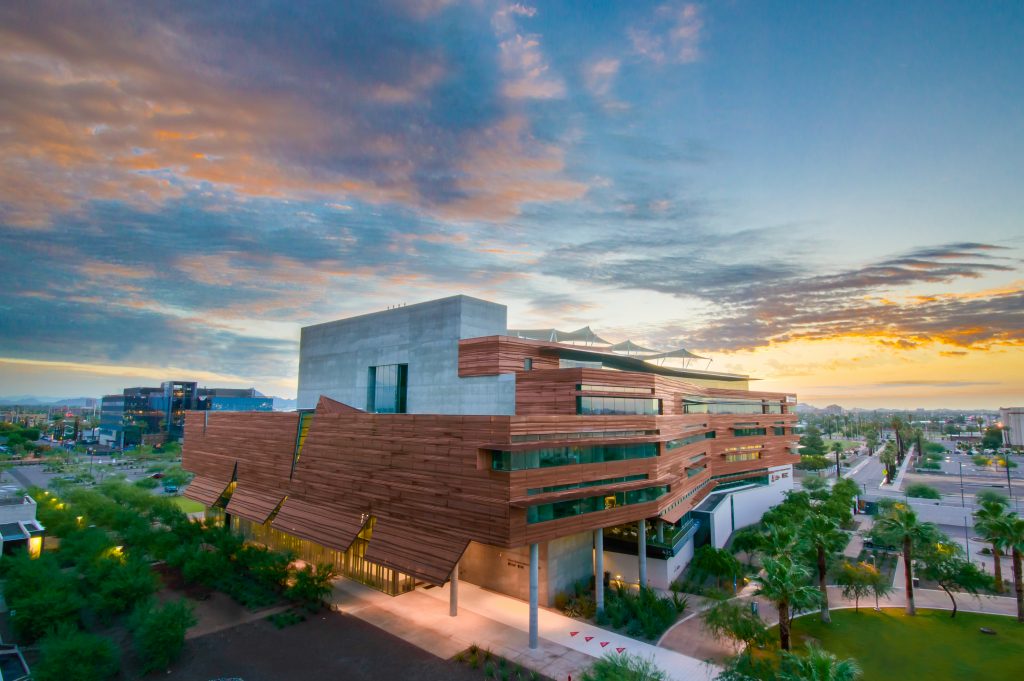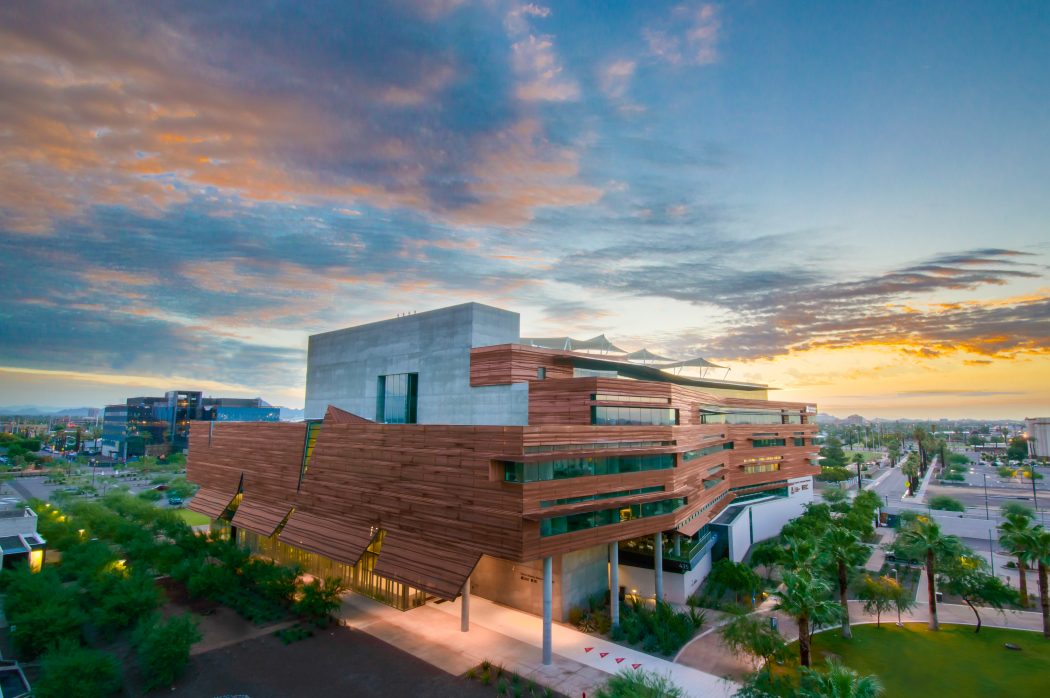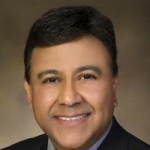A DEAN’S PERSPECTIVE
To say that my career in academic medicine has been non-traditional may be an understatement. By age 20, I had completed the requirements to become a licensed clinical pharmacist without much of a clue of what to do after that. After clinical practice in the community and hospital settings, a teaching stint as a clinical instructor, and work to establish the first personalized drug dispensing system at University Hospital, I decided that my intellectual curiosity and career ambitions were not yet satisfied. I spent considerable time and energy, and long sleepless hours, trying to decide if medical training or scientific research was the answer. Along the way I began to imagine myself as a faculty member engaged in advancing the frontiers of science through research and discovery and teaching. In my mind, this translated to PhD training. Little did I know at the time that combined MD-PhD would be offered years later or that MD training alone did not exclude the possibility of translational and clinical research.
 I enrolled at the University of Texas at Austin where I pursued combined graduate training in biochemistry and pharmacology. This combination afforded me the right mix of fundamental scientific discovery with applications and relevance to patient care. My PhD work focused on cellular signaling and myocardial pathology. After completion of my degree, I pursued postdoctoral training on the biology of smooth muscle denervation with the hope of becoming a vascular biologist. I happily worked for many years, and after that, I rose through the academic ladder at a fast pace, becoming a full professor at a highly regarded institution by 35 years of age. My dreams to impact graduate and medical education and to change the world through scientific discovery were fulfilled, or so I thought. Interestingly, my career had drifted away from questions of clinical relevance to fundamental questions in molecular biology and genetics. I had truly become a gene jock who specialized in regulatory promoter bashing and the discovery of novel genes, back when we did not know what the inner workings of the human genome were. My work was fulfilling, but I began to miss patient interactions and, importantly, the opportunity to carry out research that could more easily translate into positive patient outcomes and improved quality of life. While this is not to say that fundamental genetic discovery is of lesser value, my passion had once more shifted from discovery to applications and into the clinical realm. Over the span of a relatively short career, I had actually completed a full journey of self-discovery and realization.
I enrolled at the University of Texas at Austin where I pursued combined graduate training in biochemistry and pharmacology. This combination afforded me the right mix of fundamental scientific discovery with applications and relevance to patient care. My PhD work focused on cellular signaling and myocardial pathology. After completion of my degree, I pursued postdoctoral training on the biology of smooth muscle denervation with the hope of becoming a vascular biologist. I happily worked for many years, and after that, I rose through the academic ladder at a fast pace, becoming a full professor at a highly regarded institution by 35 years of age. My dreams to impact graduate and medical education and to change the world through scientific discovery were fulfilled, or so I thought. Interestingly, my career had drifted away from questions of clinical relevance to fundamental questions in molecular biology and genetics. I had truly become a gene jock who specialized in regulatory promoter bashing and the discovery of novel genes, back when we did not know what the inner workings of the human genome were. My work was fulfilling, but I began to miss patient interactions and, importantly, the opportunity to carry out research that could more easily translate into positive patient outcomes and improved quality of life. While this is not to say that fundamental genetic discovery is of lesser value, my passion had once more shifted from discovery to applications and into the clinical realm. Over the span of a relatively short career, I had actually completed a full journey of self-discovery and realization.
With firm conviction and strong support from loved ones, I enrolled in medical school with the hope of helping to advance the newly emerging field of genomic medicine. As a non-traditional student, I saw medical school through the lens of an experienced researcher that needed to learn the art and practice of medicine. I enjoyed every single patient encounter and cherished every opportunity to learn of the human condition and the makings of human suffering. Every lesson fueled my desire to work diligently to apply the knowledge I had acquired to patient care. To transform the practice of medicine into one that embraced exciting genomic discoveries with an understanding of environmental and lifestyle determinants of health. As my medical knowledge increased and I honed my clinical skills, I redirected my intellectual efforts from fundamental biology to translation and worked hard to try to bridge the gap between discovery and practice. My efforts aligned well with the rapid evolution of precision medicine, which is now regarded as the next big revolution in medicine.
Upon completion of clinical training, I decided to devote my efforts to the practice of precision pulmonary medicine with emphasis on chronic obstructive pulmonary disease and non-small cell lung cancers. My efforts and dedication paid off, having received special distinctions beyond my wildest dreams with an initial designation as Associate of the National Academy of Sciences and later election to the prestigious National Academy of Medicine. Along the way, I acquired in depth experience across the tripartite mission areas of education, research, and clinical service, and I have been blessed with appointments throughout the world to address health issues of pressing global importance in the areas of functional genomics, precision medicine, environmental health and toxicology.
As interim dean of the College of Medicine – Phoenix, I am working diligently to steer the changing landscape of medicine and healthcare through academic, executive, administrative, and scientific service. I am honored to have the opportunity to build upon the College’s tradition of excellence in the training of our next generation of healthcare providers for the state of Arizona and beyond. With the highest ambition for excellence, I work closely with the faculty and staff of the College of Medicine to secure a place for the College among the most outstanding institutions in the US involved in the education of physicians and the discovery of new cures for disease. The future of medicine is bright as we conquer the ailments of the past and work together to brighten the lives of others!
A native of Ely, Nevada, Dr. Ramos spent his formative years in New York City, Puerto Rico, and Texas. He is married to Irma N. Ramos, M.D., a pediatrician and public health practitioner, and has two children – Kristie, a second year medical student at the UA College of Medicine –Tucson, and Ken Alexander, an undergraduate biology major at the University of Arizona.


